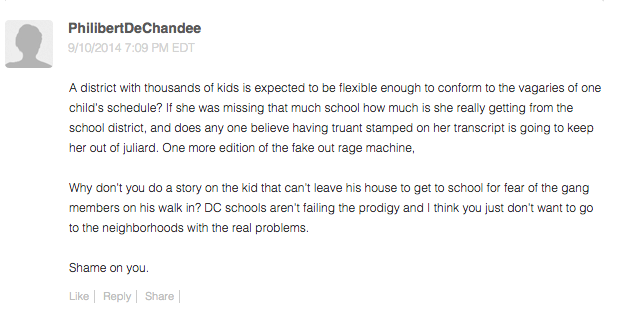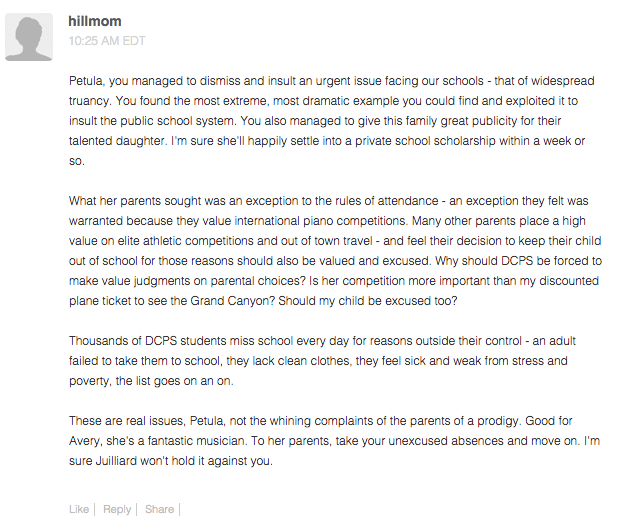Friday Freakout: Public School Defenders Say Disgruntled Parents Should ‘Move On’
Stories like Avery’s, the subject of Petula Dvorak’s Washington Post article “In D.C., a 13-year-old piano prodigy is treated as a truant instead of a star student,” elicit passionate, sometimes surprising, responses. Shortly after the release of that article, the D.C. Public Schools chancellor issued a statement saying the article was inaccurate. To clear Dvorak’s name, the paper released a follow-up.
Here are two freakouts from the comments that show just how skewed many people’s mindsets have become about education and public school:


No one disagrees that it’s important children get the attention and education necessary to move them out of such hardships. But the fact of the matter is – and public-only advocates boast about this all the time – public school districts are responsible for serving the needs of every child who enrolls in their schools. It’s true public schools are swamped. Some have thousands of students. Some have students with exceptional needs and hard home lives. That is an unfortunate reality we all must try to correct, but not a worthy excuse for what happened to Avery.
When determining which families deserve a school’s best service, should school districts discriminate based on a child’s socioeconomic status? Should students be ranked by how poor their living circumstances are, then assigned what level of service they’ll get from their school? We hope any student, parent, or educator would give a resounding, “No.”
What hillmom and PhilibertDeChandee have actually drawn our attention to is not who is more deserving of good customer service, but a bigger issue. Parents and students – from those excelling to those struggling – want to be treated as humans, not cogs in a machine.
If some parents think international piano programs, elite athletic competitions, or traveling to experience history and culture are necessary for their kids’ education and future, who are we, or any public school bureaucrat, to say they are wrong? All children are unique, and their education should reflect that. We could try to force a system of schools to provide that kind of customization for every child, but evidence has shown that one place just can’t do it all.
Furthermore, if every family had the financial ability to “move on” as hillmom suggests parents who are dissatisfied with their public school should, it’s unlikely the public school system could maintain that sort of attitude. Perhaps that is precisely why public education should be administered through a universal educational choice system. When every family can choose schools and other educational services that are responsive rather than dismissive of their needs, imagine how quickly schools in every sector would improve.
To learn more about how education savings accounts raise parental satisfaction with their kids’ tailored education, check out our library of research.




